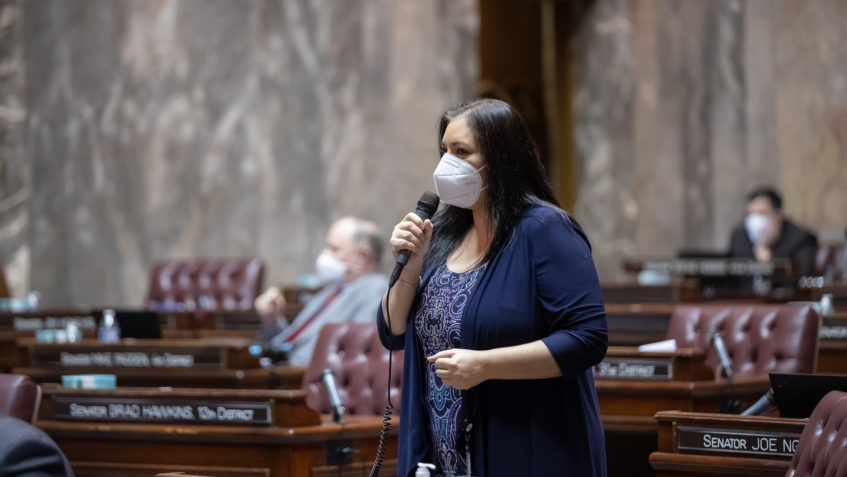OLYMPIA – In a decision released this morning, the Washington Supreme Court declared unconstitutional the state law that makes simple possession of drugs a felony crime, because it does not require prosecutors to prove that the possession was intentional.
“This is a huge decision that has far-reaching consequences we are just now analyzing,” said Sen. Manka Dhingra (D-Redmond). “Under this decision, the simple possession of illegal drugs cannot be prosecuted in Washington.”
Prior to this decision, Washington was the only state in the country where the prosecution did not have to prove that the person knowingly or intentionally possessed drugs. The decision means that all convictions in Washington for simple possession have been overturned. Convictions for other drug crimes are not affected.
“One of the most important consequences that we cannot overlook is for people who are currently receiving court-ordered substance-use treatment,” said Dhingra “Those who were charged only with simple possession are now no longer required to go to treatment. Even for those who want to keep receiving treatment, it’s not clear who is going to pay for that treatment.”
In its decision, the Court called attention to the social consequences of conviction for simple possession.
“Attaching the harsh penalties of felony conviction, lengthy imprisonment, stigma, and the many collateral consequences that accompany every felony drug conviction to entirely innocent and passive conduct exceeds the legislature’s powers,” wrote Justice Sheryl Gordon McCloud in the majority opinion.
For years, these consequences have fallen disproportionately on people of color.
“This decision must be a call to action to change our statutes so that we can keep our communities safe while addressing the disproportionate impact our drug laws have long had on communities of color,” said Dhingra. “The balance of our system has been tilted too far away from rehabilitation and toward punishment. It’s time to restore the balance that our system has lost.”
Coincidentally, the Senate today passed a bill sponsored by Dhingra that would wash away some of the lingering effects of the disproportionately harsh sentences meted out in the War on Drugs.
“We as a state have recognized that substance use disorder is a public health issue rather than a criminal justice one,” said Dhingra. “Washington has made significant progress in recent years—we have expanded the use of diversion courts, sentencing alternatives, and treatment programs. People are now provided treatment for offenses that even five years ago would have received a harsh sentence.”
SB 5035, passed today by a vote of 27-19, would exclude some past drug crimes from contributing to the criminal history score that helps determine an offender’s sentence, if it has been more than five years since the date of the past conviction.
The past crimes that would wash out from the offender sentencing score after five years under SB 5035 are simple possession of drugs; solicitation, conspiracy, or attempt to possess; and solicitation, conspiracy, or attempt to deliver. More serious crimes such as manufacturing, delivering, or possessing with intent to manufacture would not be removed from the scoring system by the bill.
“Decades of experience in Washington and across the nation have given us evidence—tragic evidence—that criminal penalties are not the way to help people move beyond substance use,” said Sakara Remmu of the Washington Black Lives Matter Alliance. “Our coalition is focused on the whole of Black Life. Treating people as whole people. Using best practices, not punishment, to get them the help they need. SB 5035 is a step toward better policy and to leaving undue and unfair penalties behind.”
SB 5035 now goes to the House of Representatives for consideration. It has until April 11 to be approved by the House to be eligible to become law this year.
The 2021 legislative session is scheduled to adjourn on April 25.





